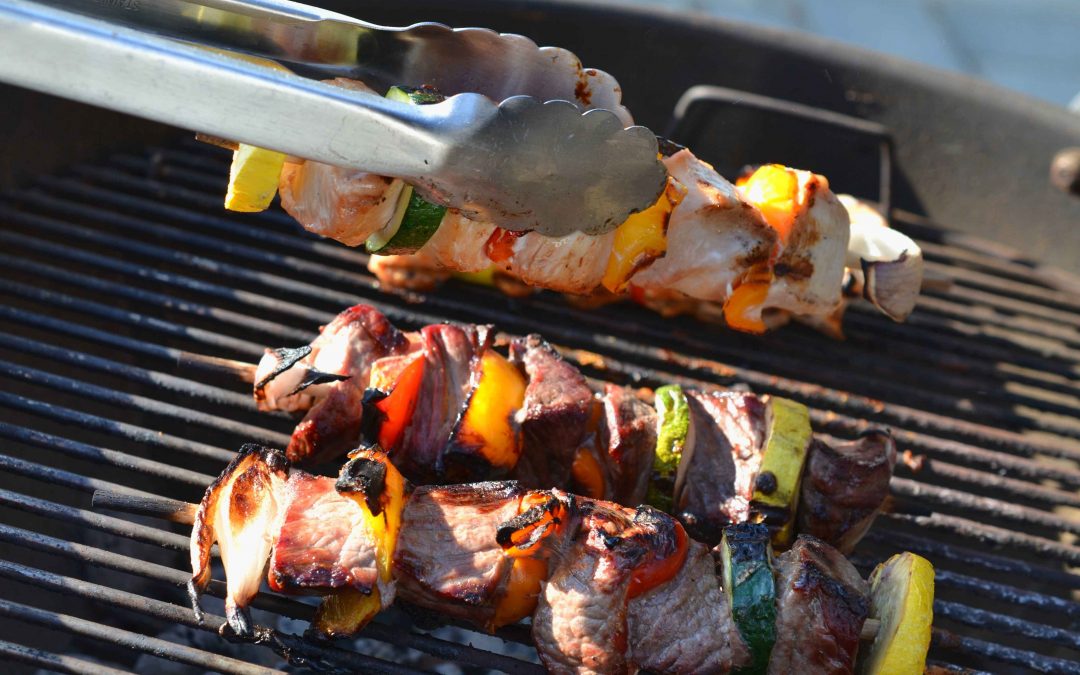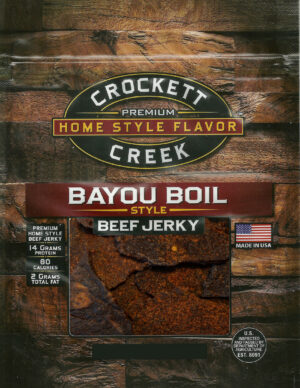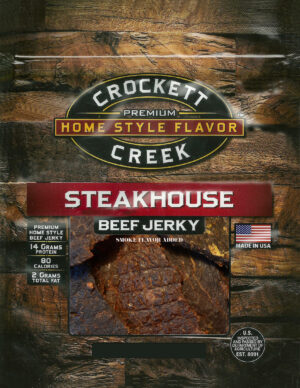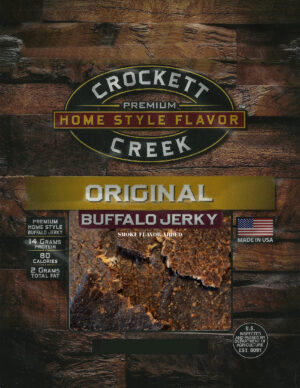If you’re whipping up a homecooked meal, the meat is likely your top priority. Whether it’s beef, chicken, pork, or fish, the protein is the star of the show, so it needs to shine! Preparation, flavor, and cooking technique are all important aspects of serving a piece of meat that will leave your family or guests reaching for a second serving. The top two priorities when preparing a delicious piece of meat are tenderness and flavor—keep reading to find out how to achieve these goals for chicken, steak, pork, and seafood.
Tips for Tenderness
Tenderizing is the process of breaking down tough fibers within a piece of meat to make it more tender and easier to chew. It is a key step for preparing a variety of meats and cuts. Another benefit of tenderizing is that it enhances the meat’s ability to absorb and lock in flavors and juices.
Tenderizing Beef
Let’s face it, we can’t eat filet mignon for every meal. Opting for a more affordable cut or an option that’s more suitable for feeding a large group doesn’t mean you have to sacrifice tenderness. Tougher cuts such as flank steak, skirt steak, sirloin, and tri-tip can all greatly benefit from tenderizing.
Just Beat It
The best way to attack a tough piece of beef is with a hammer. A meat mallet is a useful tool designed to break down tough fibers and muscle tissue. They typically feature a flat side and a studded side. Before you start pounding, place your steak on a wooden cutting board and cover it with plastic wrap to keep its juices from escaping or splattering all over your kitchen. Start in the center and work your way outwards until the steak is your desired thickness and is uniformly covered in stud marks. The small holes that are left behind will help the steak soak up more flavor during the marinating and seasoning process.
Tip: if you do not have a meat mallet, try using a rolling pin, cast iron skillet, or a regular hammer.
Salt Rub
Salt tenderizes steak by absorbing excess moisture from inside the meat, creating a natural brine, and by breaking down lean muscle proteins that are difficult to chew. Pour a generous amount of kosher salt or sea salt on a cutting board or platter. Lay the steaks on top of the salt and generously massage more salt on to the top and sides of the steak. Place them in the fridge for at least one hour. For every inch of thickness, allow your steak to sit for 1 hour.
Tip: Do not use table salt, it will absorb into the meat and create an overly salty flavor. 2) Do not leave your steaks in the salt for too long or your meat will be cured rather than tenderized.
Tips for Tender Chicken
Is there anything worse than dry, chewy chicken? The answer is no. Beating chicken breasts with a meat mallet will have the same tenderizing effect that it has on steak, follow the instructions above. Pounding chicken breasts is especially helpful for achieving juicy, tender chicken because breasts naturally vary in thickness. Pound them to uniform thickness to enable even cooking and avoid dry areas.
Cooking chicken at a lower temperature for a longer period will give you a more tender result. If you love a crisp seared exterior, simply sear your chicken first and then reduce the heat. Overcooking is the main cause of dry and chewy chicken, use a meat thermometer to periodically check the internal temperature of your chicken.
Once it has reached 165 degrees Fahrenheit remove it from the heat. Always allow your chicken to rest after cooking for at least 5 minutes to keep the juices from escaping.
Low and Slow
For meat such as ribs and pot roast, the goal is for it to be so tender that it falls apart. The best way to achieve extreme tenderness is to cook the meat low and slow. The two most popular ways to do this are with a crock pot or a smoker. Smoking breaks down collagen, a tough protein, in the meat. This softens it and keeps it from holding together—this is why good ribs fall off the bone.
Slow cooking does a similar thing, the steam turns collagen into a liquid which creates moist and tender meat. Smoking can be a tedious process, but the tenderness and smoky flavor are totally worth it if you have the time. Cooking in the crockpot is one of the easiest and least time-consuming ways to cook meat. There is no need to marinate meat before putting it in the crock pot, simply put the meat in along with some form of liquid and the seasonings, spices, and herbs of your choice. Cooking meat in the crock pot is popular among mothers and busy professionals because you can leave it on during the day and have a delicious ready-to-eat meal at dinner time.
Marinating
Creating a flavorful piece of meat starts with a good marinade. Marinades infuse meat with flavor from the inside out. There are endless marinade recipes and premade marinades on the market so you can personalize the flavor of your meat based on your taste preferences and the meal.
Marinade Recipes
Marinades should include the following components: oil/fat, spices, salt, and acid. Seasoning mixtures and fresh or dry herbs are also common ingredients that work well in marinades. Salt is the key to making meat that is flavorful all the way through. It draws moisture out of the meat, creating a brine that absorbs the flavor of your marinade’s ingredients. Oil, on the other hand, helps flavor stick to the surface of the meat. Adding acid to your marinade breaks down the proteins in the meat, making it more tender.
The following few sections offer marinade ingredient recommendations for a few popular types of food. These marinades can be used for any meat from full chickens to shrimp. All should include an oil/fat base and a dash of salt, but the rest is up to you!
Mexican Spice
Whether you’re making beef tacos, chicken quesadillas, or shrimp fajitas, a good marinade will make it muy delicioso! Popular ingredients for Mexican inspired marinades include cilantro, garlic, cumin, lime, chili powder, and adobo sauce.
Asian Flavor
If you’re going to try your hand at Asian cooking, try these ingredients in your marinade: soy sauce, rice vinegar, sesame oil, garlic, ponzu, ginger, fish sauce, and honey.
Taste of the Mediterranean
The key to authentic Mediterranean flavor is fresh herbs. Basil, parsley, dill, and oregano are some of the most popular ones. If you don’t have fresh herbs, dry herbs will achieve a similar result. Tahini is an alternative option for a marinade base and lemon or lemon zest should be included in the recipe.
Classic American
For classic American flavor use Worcestershire, Dijon mustard, garlic, black pepper, and onion powder in your concoction.
Premade Marinades
Premade marinades are ideal for grillers, busy schedules, and beginner chefs. If you’re constantly busy or have a particularly busy day ahead, premade marinades should be your best friend. Pop your dinner in a bowl, pour the marinade in, pop it in the fridge, and get back to what you’re doing. If you’re new to cooking and don’t want to risk making something that is inedible or unbalanced in terms of flavor, just use a premade marinade. They take out the guess work and give you a consistently good result.
If you’re cooking at a tailgate, on a camping trip, or you want to enjoy a pretty day and you don’t want to bring your whole kitchen outside, just bring your meat and a premade marinade. Premade marinades allow for easy grill side prep. Premade marinades can also be used as a base ingredient, add your own ingredients to customize it.
Marinating Chicken
Chicken is a blank slate compared to other meats. It has very little flavor on its own and is prone to getting dry. The good news is marinating solves both issues—making your chicken flavorful and juicy. While some flavor will penetrate the chicken, the majority will remain on the surface, cutting chicken into strips or cubes before marinating will amplify the flavor because it creates more surface area per bite.
Most marinades are oil-based, but a buttermilk marinade is a great option for chicken. Like citrus juices and vinegars, buttermilk is acidic, so it tenderizes the meat while infusing it with flavor. Chicken should always be put in the fridge to marinate, and the proper amount of time depends on the cut of chicken. Below is a guide to the optimal marinating times for different cuts.
- Whole Chicken: 4-12 hours
- Breast: 30 minutes-6 hours
- Thighs, Wings, Drumsticks: 2-6 hours
Tips: 1) If you’re short on time, cut your chicken into smaller pieces before marinating. Cubed chicken will absorb flavor in about 30 minutes. 2) The same basic guidelines can be followed for any type of poultry including turkey, duck, and pheasant.
Marinating Steak
Some cuts of steak such as filet mignon are not typically marinated, while other cuts like skirt steak greatly benefit from it. The tougher the cut the longer it should be marinated. Ribeyes, sirloins, and Tri-tips only need about 30 minutes to absorb the flavor of the marinade and reap the tenderness benefits that the acid provides. Shoulder cuts, round, skirt steak, flank steak, and hanger steak should be marinated for at least 4 hours and if you plan your meal a day in advance, you can marinate them for up to 24 hours. Steak should be placed in an airtight container or bag along with the marinade and placed in the refrigerator
Marinating Fish
Fish is much softer and naturally more tender compared to other proteins and thus they don’t need to marinate for as long. So, how long should you marinate different types of fish? Fish steaks like tuna steaks should be marinated for an hour or so. Firm fish varieties including Halibut and Grouper should marinate for about an hour as well. Flaky fish like Sea Bass and Salmon only require about 30 minutes to soak in the flavor of the marinade. Shrimp should only be marinated for half an hour as well. Most fish marinades are very acidic, the crisp flavor of lemon and lime in particular pairs well with fresh seafood.
Seasoning and Spice Rubs
While marinating your meat adds flavor, adding seasonings and spice rubs takes it to the next level. Also, we don’t always think far enough ahead to properly marinate the meat for every meal. If you swing by the grocery store on the way home from work to pick up ingredients for dinner, you can still achieve a delicious main course with the help of seasonings, spices, and herbs. If you marinated the meat ahead of time, use the same spices/seasonings or flavors that complement the marinade.
Don’t Be Skimpy with the Chicken Seasoning
As it said in the previous section, chicken is the blank slate of meats. Chicken should be seasoned generously, especially if you didn’t have time to marinate it beforehand. Pat your chicken dry and rub with oil to ensure that spices and seasoning stick.
Say Goodbye to Bland Burgers
Ground meat does not fare well in a marinade, so all the flavor must come from the seasonings and spices that you add. Seasoning can be put on top of formed patties, but for the most flavorful burger, season burgers is to thoroughly mix the spices in. Put your ground meat into a bowl and add seasonings to your heart’s content, you’ll need more than you think for the flavors to shine through.
Popular burger seasonings include salt, pepper, garlic powder, onion powder, and paprika, but don’t be afraid to get creative with it. Add Cajun Seasoning for a little spice and if you’re a ranch lover, try adding some powdered ranch mix. Spice mixes that already include a variety of different flavors are ideal for outdoor grilling because they have all the flavor you need in one bottle and eliminate the guess work.
Spice Up Your Seafood
While seafood benefits from a marinade, it isn’t a necessity because seafood is flavorful on its own. A well-balanced spice mix and a squeeze of lemon juice will deliver a delicious result.
Seasoning Steak
For a prime cut, stick to salt and pepper and let the meat’s natural flavor shine. For cuts that benefit from a marinade, rubbing spices into the steak will add to the flavor. You do not need to season steak as liberally as chicken, a sprinkle of each spice on both sides will get the job done.
Elevate Your Next Meal with Crockett Creek’s Blazin’ Cajun Spice Mix and Original Marinade
Who is a better expert on how to create flavorful meat than a beef jerky maker? Crockett Creek Blazin’ Cajun Spice Mix combines all the delicious flavors of the bayou in one bottle. It adds southern flavor and a dash of spice to any protein or side dish. Crockett Creek’s Original Marinade is the same marinade used in our jerky recipes. We decided it was too good for us to keep to ourselves, so we botted it up and made it available to you. Soaking your steak, chicken, pork, or fish in Crockett Creek’s Original Marinade is the first step to creating a delicious All-American meal. Add a little flavor to your life by visiting our website and ordering our Original Marinade or Blazin’ Cajun Spice Mix.





